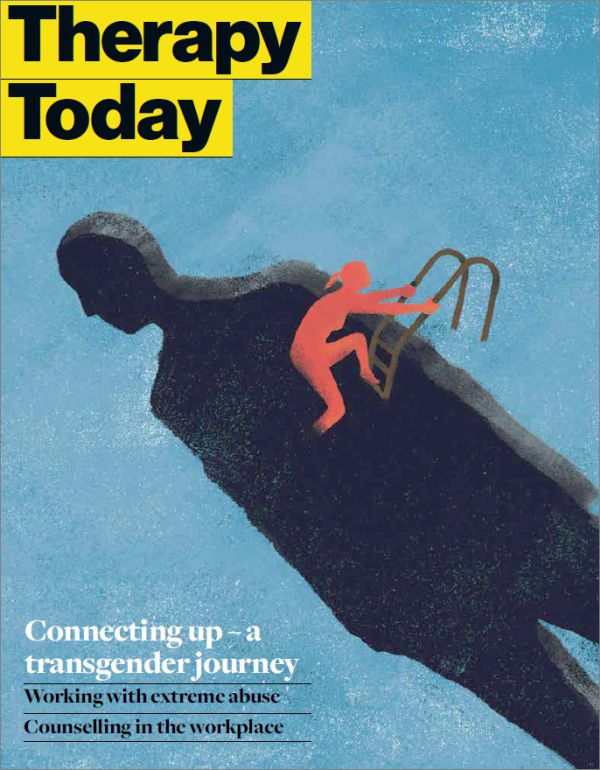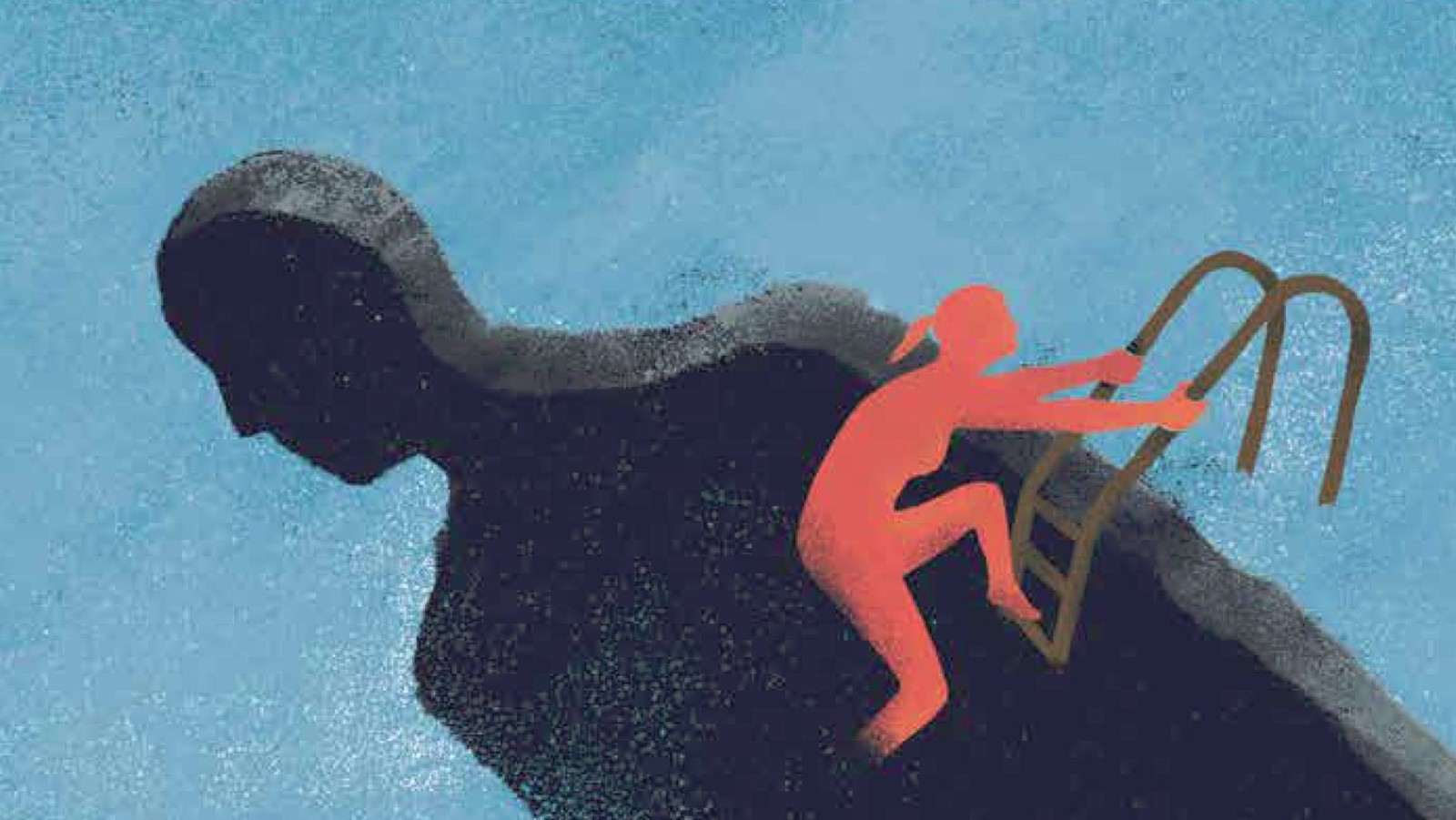In this issue
Features
Being transgender and transgender being
Sophie Grace Chappell charts her transgender journey and how counselling helped.
Working with extreme abuse
Commentaries on Emily's story
Psychotherapists describe the challenge of working with survivors of extreme childhood sexual abuse.
Who am I and what makes me who I am?
Fatima Adam writes about coming through culture clash and finding a sense of self.
Why ancestors matter
John Harris explores the importance of transgenerational inheritance in shaping who we are.
Counselling the workforce
Nicola Banning investigates the dual role of the counsellor in supporting employees and their employer.
Regulars
News feature: Co-location or collusion (free article)
How ethical are the Government’s proposals for closer working between IAPT services and Jobcentre Plus? Catherine Jackson reports

A pdf of this issue is available in the Therapy Today archive
Editorial: Learning from our mistakes
It is surely astonishing that the psychotherapy profession pays such little heed to the adverse effects of its interventions. We last discussed this issue in June 2015, in an article reporting the work of Glenys Parry and colleagues at Sheffield University on the Supporting Safe Therapy initiative. That article alluded to a large, national study of adverse effects of counselling and psychotherapy, which has now been published, and raises some very important points.
The first is this failure of the profession to pay much heed to the need to record and report the adverse as well as positive effects of treatment. It is, after all, one of the criticisms of drug trials – their tendency to omit from the data analysis participants who drop out of the study or fail to complete the course of treatment (sometimes, tragically, because they have taken their own life).
Then there are the important findings about which groups in particular are more likely to report adverse effects of therapy: black and minority ethnic people, people who receive therapies outside the mainstream models, and clients who haven’t been given enough information about what the treatment involves before they start therapy. The last two are unsurprising when there are so many different kinds of therapies on offer. And if you are unfamiliar with psychotherapy and counselling techniques, you might well feel disappointed and dissatisfied if you were hoping for some practical advice to guide you out of your hopelessness and despair.
The finding about BME clients is sobering and, as the researchers say, points to a need for the profession to include much more content on cultural awareness in both initial training curricula and continuing professional development. Half a day on ‘diversity issues’ isn’t going to do it. And, as Glenys Parry argues, psychological therapy services really do need to monitor not just the outcomes at the end of treatment but any deterioration after the therapy ends as well, and the drop-outs and why they stopped coming. How can a profession claim professional status if it is in denial about its own failures and mistakes?
Catherine Jackson
Acting editor
